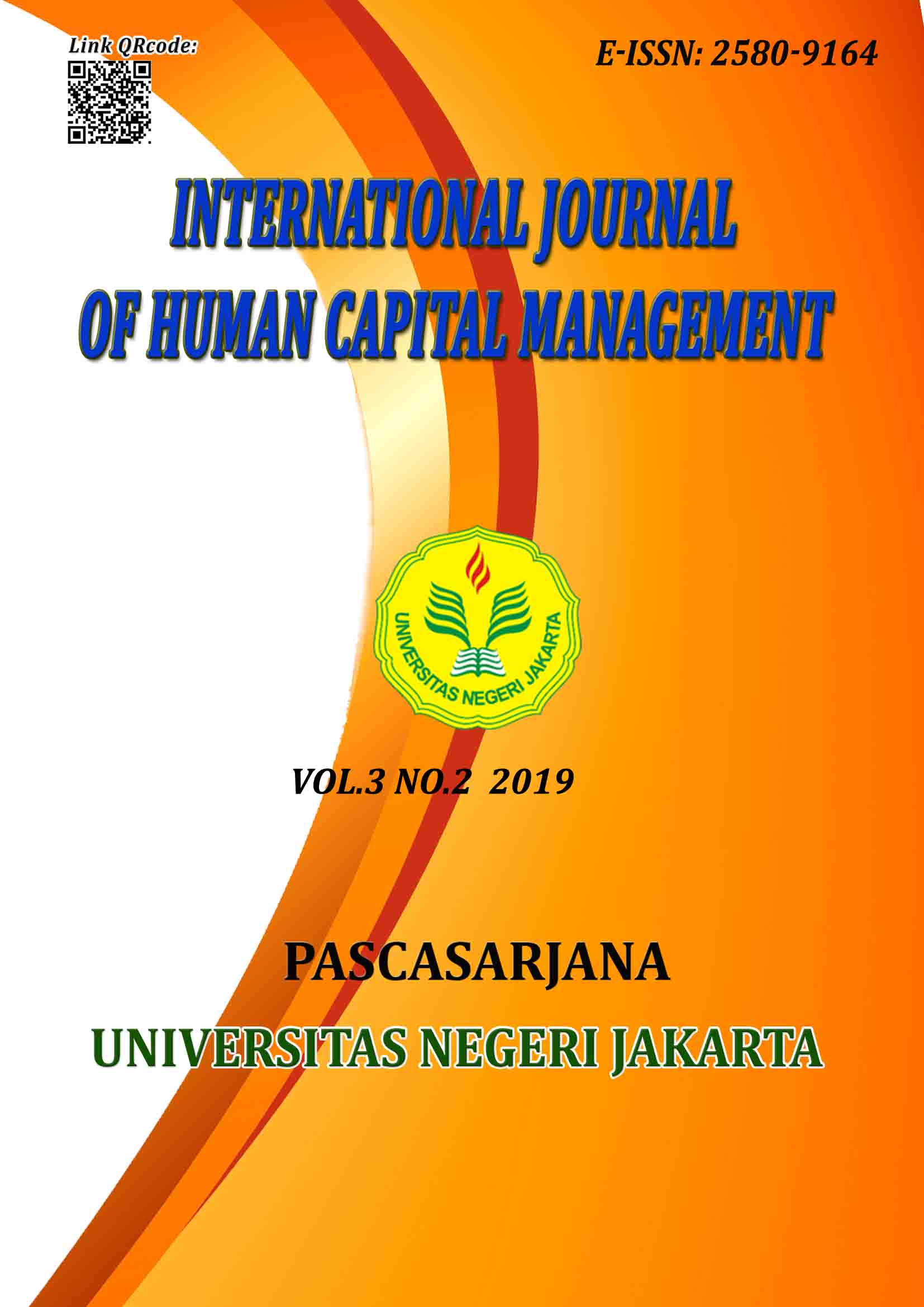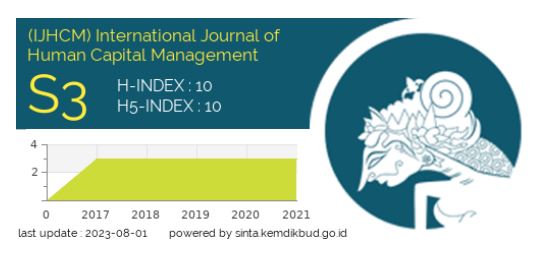Education Program Evaluation of Air Force Unit Command School (SEKKAU) In the Development of Human Resources
DOI:
https://doi.org/10.21009/IJHCM.03.02.08Keywords:
Education Program Evaluation, Indonesian Air Force Unit Command SchoolAbstract
The purpose of this study is to obtain empirical and analytic data on substantive and important issues that affect the implementation of the Air Force Unit Command School’s education program. The study was conducted from 1 January 2019 to 30 June 2019 at Air Force Unit Command School (Sekkau) in Jakarta. This study used a qualitative approach with the CIPP model to evaluate the results and benefits of implementing education at Sekkau. Respondents in this study were Sekkau’s students who were studying at the time of data gathering, former Sekkau’s student serving in Air Force units, as well as instructors and officers who have authority on policies of applied at Sekkau. The informants in this study were Air Force Chief of Staff (Kasau), Assistant to Chief of Air Force Staff for Personnel (Aspers Kasau), Commander of Air Force Education and Training Command (Dankodiklatau), Head of Air Force Education Service (Kadisdikau), Sekkau Commander, and Sekkau alumni batch 104 of the 2017 academic year. The sampling procedure for this population used multi-stage (clustering). The sample selection for the survey was carried out using a purposive sampling method of 15 respondents distributed proportionally consisting of Kasau, Aspers Kasau, Dankodiklatau, Kadisdikau, Dansekkau, and Sekkau alumni of the batch 104 of the 2017 academic year. The selection of population and respondent samples, especially in modeling, was adjusted to environmental conditions and the number of interviewees to be taken i.e. those who were considered to be able to represent and understand the issues under study.The findings are: (1) the educational program of Sekkau is in accordance with the background or context of the program, which is seen based on aspects of needs, aspects of the problem and aspects of objectives, (2) the available support for education program at Sekkau in general is in a sufficiently supportive condition for the effectiveness of the education and training program for students which is seen based on aspects of human resources, budget, and the curriculum (3) implementation of educational programs were well done based on aspects of timeliness, application of learning methods, evaluation and monitoring, development of human resources, recruitment of teaching staff and staff and services to students, (4) the achieved results of the educational program at Sekkau in general was quite good from the aspect of responsiveness, toughness and vigour. The novelty of this research is that the evaluation of education program of Sekkau was obtained through two design models, namely using the David Stufflebeam CIPP evaluation model and the Four Models Kirkpatrick evaluation model that has never been done before. The results of program evaluation in this study were also obtained through the match between the idealism of evaluation criteria that were built with real conditions in the field that were different from previous studies. These are the novelties resulting from this research.




